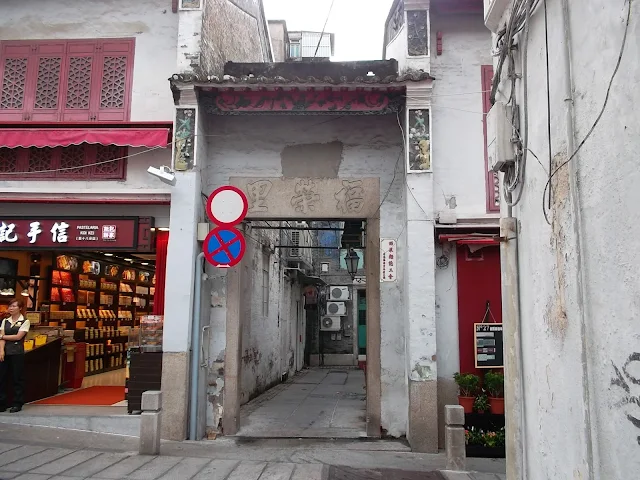Several years ago I wrote a post about how difficult it is to find budget accommodation in Macau. Indeed, I was planning on spending a few months in the former Portuguese colony, and I believed it should be cheaper than neighbouring Hong Kong. Nothing could be further from the truth. Despite looking like a small, sleepy town, Macau is more expensive than Hong Kong.
The only budget accommodation I found was San Va Hospedaria, which is an old-style guesthouse.
It is located in an old building on the beautiful Rua da Felicidade, about which I wrote a post years ago. San Va was originally a private club house built in 1870s. In the 1930s it was turned into a guesthouse catering to merchants and workers from mainland China. San Va became famous when Hong Kong film director Wong Kar-wai chose it as the location for some of the scenes of the film 2046.
San Va has maintained the flair of old Macau. However, if you decide to give it a try, you must know that this place is really, really dirty and shabby, and it lacks modern facilities one would consider standard these days. In this post, I would like to briefly explain why you should think carefully before you book a room there.
First of all, the rooms don't have real walls on all sides, but are separated from other rooms by thin, green wooden partitions that don't even reach to the ceiling and the floor. As a result, you can hear everything that's happening next door. I mean, everything ...
Second, there is no air-conditioning or heating system. It is extremely hot in the summer and extremely cold in the winter. Rooms are equipped with fans, but there is nothing to protect you from mosquitoes. You will need a mosquito repellent if you want to have a chance at sleeping.
Third, hygiene is lacking. The rooms are dirty. It is not unusual to see cockroaches. However, in my experience bed sheets are clean.
Fourth, bathrooms are shared. There are two showers and two toilets on the first floor. Hot water is really hot. If you try to adjust the water temperature to make it a little less hot, it will turn cold.
Here are some pictures:
Here are some pictures:
 |
| Every room has a sink, which is reminiscent of rooms you will find in old-fashioned guesthouses in Italy (I'm not sure if you'll find that in Portugal or other Mediterranean countries). |
The cheapest room - called "regular room" - costs HK$220 per night on Sundays/Thursdays and HK$320 on Fridays/Saturdays. The only way to book a room is to send a request on the guesthouse's website and then wait for their reply.










Comments
Post a Comment